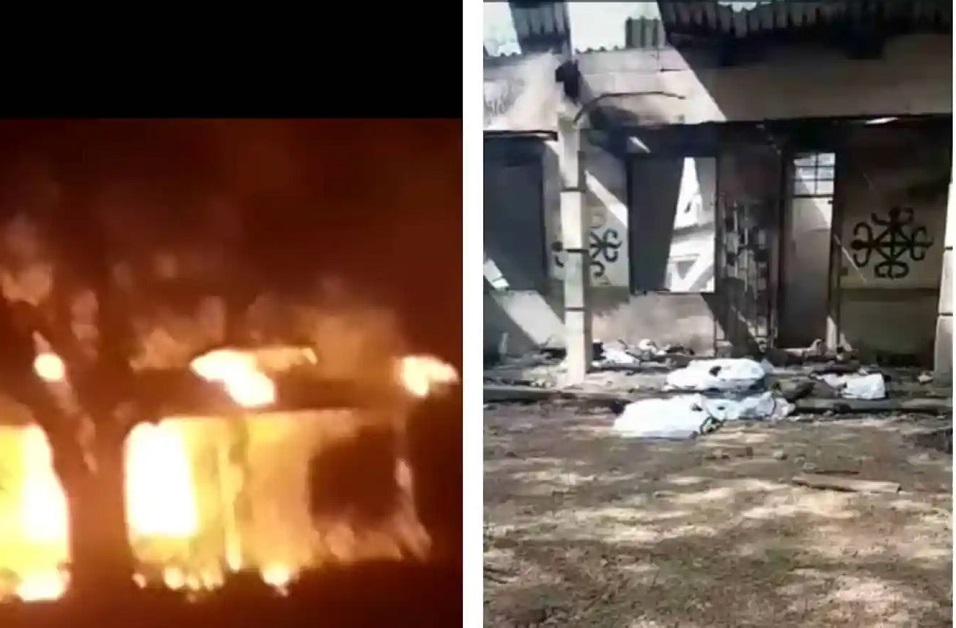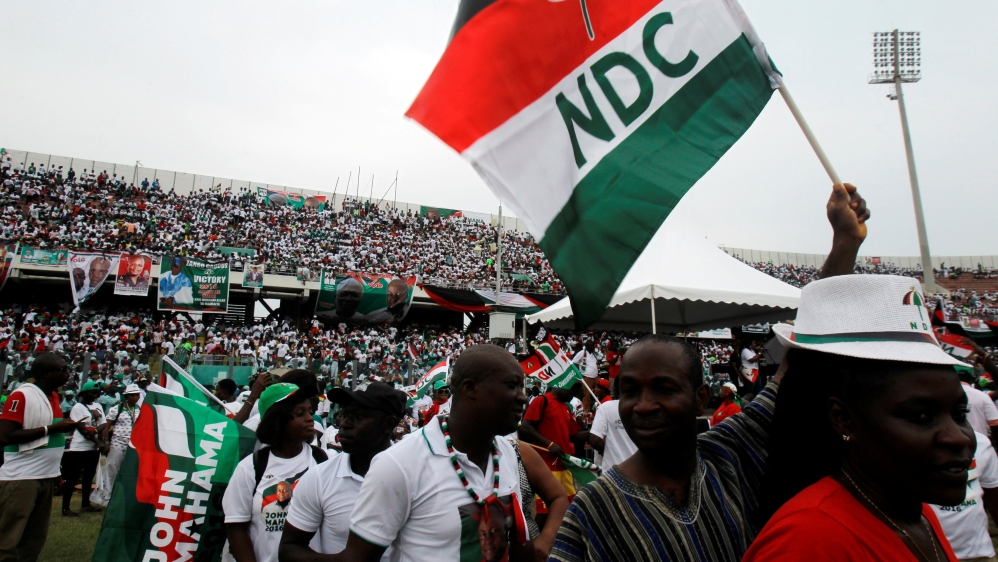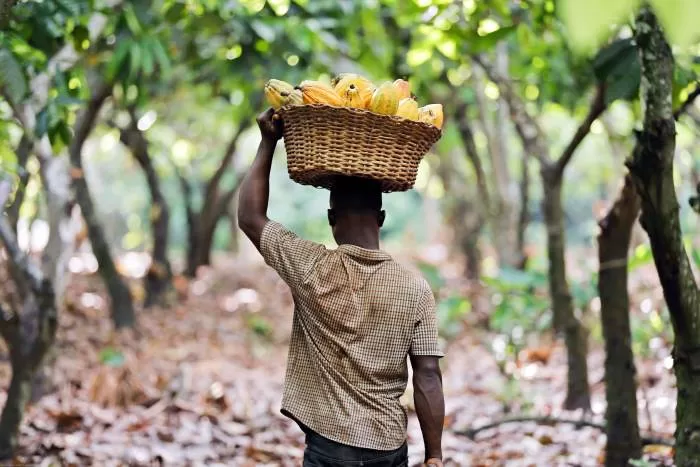A violent demonstration erupted around midnight on Sunday at the Sandema Senior High School (SANSEC) resulting in the burning of a school block.
Police personnel stationed in Builsa North, a municipality in the Upper East Region, had to race to the school to restore order.
Eyewitnesses say the riot started building up around 9:30 p.m. on Sunday when the school’s cadet corps attempted to seize mobile phones from some students under the instruction of a teacher.
The students refused to hand over their phones. The refusal resulted in a struggle as the cadet team would not leave the scenes without executing their mission. Tension flared up and spread as some students joined the fray. The situation took a sharp turn for the worse when a senior student trimmed the hair of another senior student who was reportedly wearing an unapproved hairstyle on campus.
Some students stormed dormitories, hurled stones at anything in sight and set an entire building on fire. Scores of boarding students fled the campus in different directions. They stayed the rest of the night outside.
“Some of us ran to Wiaga to sleep there,” a student told The Fourth Estate in the early hours of Monday. “Some who did not take part in the disturbance slept in the bush overnight. Many students fainted as they were running during the confusion. Some of the students already were asthmatic patients. But they are fine now. Those involved in the riot entered dormitories, throwing stones and saying if we didn’t go out, they would kill us.”
Another student told The Fourth Estate on Monday: “We just returned to campus. Police are around. There are about five police cars in front of the administration block― police cars alone. Even though the school authorities have not asked us to go home, everybody is packing because some are saying they can’t wait and die. We are still in our exams period but I don’t think we will write today.”

It was difficult for The Fourth Estate to reach the headmaster, Robert Yelioni, on the telephone for his comment on the development at the school as his mobile line was still busy before press time. But he is said to have assembled the students on Monday, entreated them to be calm and asked them to go to their classrooms.
Speaking to The Fourth Estate, a teacher, who wished to remain anonymous, said the building torched by the rioting boarders was a block where Visual Arts equipment and foodstuff among other kinds of items were kept.
“It’s a whole block. The school has its practical equipment, cadet equipment, even foodstuff and so many things inside the building. But everything is calm now. Authorities are meeting.
“So, we are waiting for the outcome as to whether the students should go home or whatsoever. So many visitors are in because of this issue. The headmaster is busy in an engagement with the visitors,” the teacher told The Fourth Estate.
Police have no business in granting interviews on student demonstration― Police PRO
The Navrongo Divisional Police Commander, Chief Supt. Yahaya Muchiraru, declined to speak on the riot when The Fourth Estate contacted him.
“If it is in connection with it, get in touch with the police PRO in the region,” said the commander.
When The Fourth Estate reached the Upper East Regional Police PRO, ASP David Fianko-Okyere, on the telephone, he retorted: “I don’t think student demonstration is for police to come and grant an interview on that. You have called me. I’m the PRO for the Upper East Regional Police Command. I am saying that I can’t comment on this matter.”
Meanwhile, the National Peace Council (NPC) says the region may continue to witness student unrest if stakeholders fail to sustain engagement of both students and school authorities in effective ways of resolving conflicts.
“We started doing some engagement with them, but I think last year and this year we haven’t been able to do much. When you start something and it fizzles out, people would go back to their normal way of doing things.
“There is nothing that cannot be resolved, particularly if people would sit down and talk. There should be constant engagement between students and school management. But we don’t seem to attach importance to this. We think school riots are part of school life. Even this year, we had a similar incident at the Bolgatanga Technical Institute,” the Upper East Regional Peace Council’s Executive Secretary, Ali Anankpieng, told The Fourth Estate on Monday.

The frequency of campus unrest has been a major concern in the region. Such was the prevalence some time ago that a former Upper East Regional Minister, Tangoba Abayage, convened a meeting with heads of second-cycle institutions in the region for deliberations on how to check it.
There are more than 30 second-cycle schools in the region. Many of them have been involved in campus disturbances that saw investigative committees instituted and students surcharged in the long run for causing damage to school property.
Riots have occurred at some of these schools on more than two occasions. A riot has been very rare at Sandema Senior High School. Observers in the region generally attribute the school’s peacefulness to the calm nature of the headmaster.
“We have a good father in him,” one of the students, Linda Aba-enge, once spoke about Robert Yelioni. “He is very calm. He calls us his sons and daughters any time he is addressing us.”

















